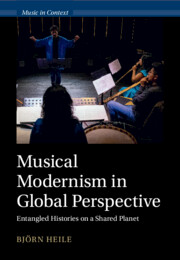Acknowledgements
Scholarship is an essentially collective activity, even when carried out individually, and I would not have been able to write this book without the invaluable and generous input of many friends and colleagues. It was mostly written during the last four years, but this followed a drawn-out process of ideas and plans being drafted, discarded, picked up again, revised, laid on ice, and so on, over an additional ten years at least. Given such a long gestation, it is difficult to say where some of the ideas originated and who was involved. This in no way reduces the importance of the suggestions, advice and thoughts I have received, nor my gratitude for them. I therefore apologise in advance if I fail to mention anyone or anything.
The earliest phases of this project took place at the University of Sussex, and I thank my colleagues Martin Butler, John Croft, Sam Hayden, Ed Hughes, Nicholas McKay and Nicholas Till for many fruitful and inspiring conversations. At the University of Glasgow, I have likewise been able to rely on the unfailing support of my colleagues, including Matt Brennan, John Butt, the late David Code, Nick Fells, Iain Findlay-Walsh, David McGuinness, Drew Hammond, Richard Gillies, Louise Harris, Sebastian Lexer, Eva Moreda Rodríguez, Jane Stanley, Bill Sweeney and John Williamson.
I have hugely benefited from many enriching exchanges across various media – face-to-face conversations, email correspondence, Facebook or Twitter discussions – with many colleagues, including Jean-François Trubert, Brigid Cohen, Tamara Levitz, Ian Pace, Derek Scott, Robert Adlington, Michael Hooper, Geoff Chew, Mark Berry, Violeta Nigro-Giunta, Laura Novoa, Omar Corrado, Nancy Rao and Rachel Campbell. The following answered specific questions, often selflessly devoting significant time and labour: Daniela Fugellie, Caroline Rae, Katja Chornik, Stephanie Jordan, Helan H. L. Yang, Luk Vaes, Henk Heuvelmans, Giles Masters and Keith Howard. In some cases, the information received unfortunately ended up on the cutting table during a revision operation, but this is no reflection on the significance of the information received or the work involved in making it available. In addition, I have appreciated the supportive environment, collegialism and many useful resources provided by the Global Musical Modernisms forum and its founder Gavin Lee.
John Butt, Eva Moreda Rodríguez, the late David Code, Sarah Collins, Michael Blake, Christopher Fox and Martin Iddon read draft chapters and provided comments and suggestions that proved vital.
Three student research assistants helped me with various aspects of this book as part of their projects: Lloyd Burden, Olivia Kettle and Jon Ramsay. The University of Glasgow provided me with institutional research leave in the Autumn Semester 2021, and the Leverhulme Trust granted me a Research Fellowship (RF-2021–238) during Spring and Summer 2022. Without these periods of leave, I could not have written the book, at least not in the time I did. The helpful and friendly attitude of staff, particularly Anna Grundy, at the Leverhulme Trust deserves special mention.
Some material for Chapter 1 was presented during a Hartley mini residency at the University of Southampton in January 2022, some material for Chapter 2 at the conference ‘Perpetual Encounter: Globalization, Cosmopolitanism, and Acculturation in Music’, Gheorghe Dima National Music Academy (Cluj, Romania), in April 2022 and some of the material for Chapter 3 at the conference ‘A “Musical League of Nations”?: Music Institutions and the Politics of Internationalism’, Institute of Musical Research (London), June 2018, the conference Wegzeichen Neue Musik. Salzburg und die musikalische Zeitgenoss*innenschaft/New Music Directions. Salzburg and Musical Contemporaneity, Mozarteum Salzburg, April 2022 and a guest lecture at the Africa Open Institute, Stellenbosch University, in May 2022. I am grateful to all responses received on these occasions.
Staff at the Paul Sacher Foundation have been consistently helpful; on this occasion, I have received particular assistance from Heidy Zimmermann and Tina Kilvio Tüscher. I am also grateful for the support and professionalism of staff at the British Music Collection at Heritage Quay, University of Huddersfield. Thanks too to Harold Thalange for his hospitality.
J. P. E. Harper-Scott has shepherded this project in its early phase at Cambridge University Press. His successor, Benedict Taylor, has taken it over with the same enthusiasm. Kate Brett has provided exemplary expert support. I was very fortunate to have found very supportive but critical anonymous expert readers at the proposal and manuscript stages who made numerous perceptive and constructive suggestions. This feedback made a substantial difference, and the book would be poorer without it. Oli Jan set the music examples in Chapter 1; Zesses Zeglias and Genesis Jandrei T. Amante helped with music examples in Chapter 5. Paula Clarke Bain has produced the Index.
Although I have been extremely privileged to have received a lot of generous support and assistance, there were also obstacles. It would be bad form to name and shame individuals and institutions here, but some of the latter may be identifiable in the course of the book.
Finally, I extend my thanks to the emu (it knows!).

